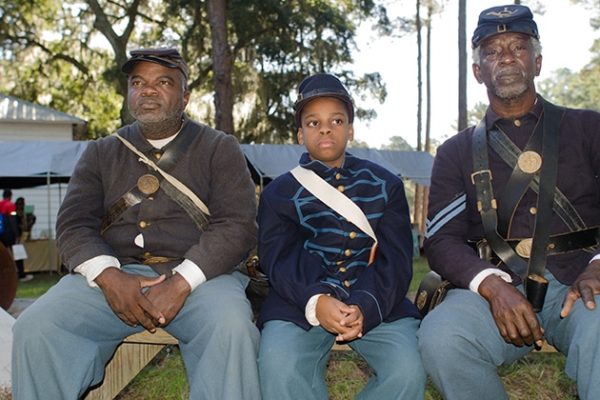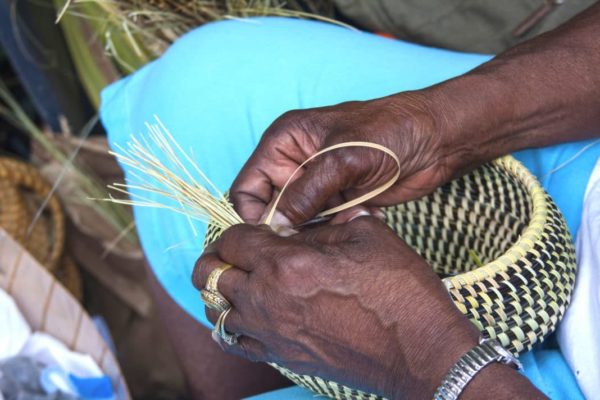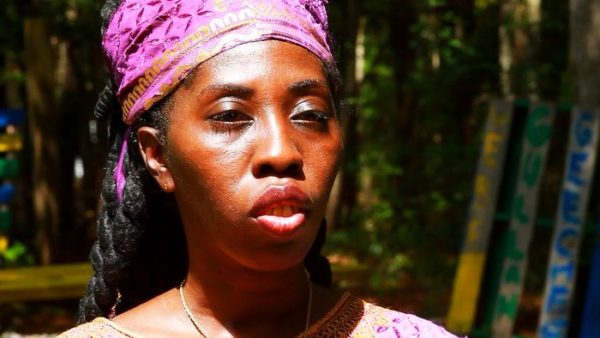The Gullah/Geechee Nation, whose population spans the southern Atlantic coastline in rural communities, is the only group of African-Americans that have retained West African culture as it was when Africans were first brought to the United States as slaves.
Unfortunately for people of Gullah/Geechee descent, however, the deep satisfaction of holding on to their rich heritage and direct African connection has come with twice as much despair.
In the past few decades, both the Gullah/Geechee’s culture and their land have become a bull’s-eye target for gentrifiers, real estate developers, large corporate entities and culture vultures alike. To make matters worse, Gullah/Geechee coastline communities also are being adversely affected by climate-change issues such as hurricanes and rising sea levels. Community leaders have been working tirelessly to safeguard what remains of their land and culture from these disasters — both natural and man-made — but it is proving to be an uphill battle on all fronts.
I had the opportunity to speak with the nation’s Matriarch, Marquetta Goodwine — also known as “Queen Quet” — on how the Gullah/Geechee are being impacted by all of these issues, as well as the fallout from the recent Revelry Brewing Co. scandal.
First, Queen Quet made it clear that when referencing the nation, always cite it as “Gullah/Geechee.” She said using only “Gullah” or “Geechee” or using “Gullah Geechee” without the slash negates the solidarity of the group as a whole. This is one of the reasons members of the Gullah/Geechee community consider the Gullah Geechee Cultural Heritage Corridor a “mock” organization of academics and politicians, many of whom have no blood ties to the Gullah/Geechee. There also is empirical evidence that this organization has been the catalyst for some troubles that the Gullah/Geechee face, such as the Revelry Brewing Co. scandal.
In late September of this year, a Charleston, S.C., company, Revelry Brewing Co., came under fire from the Gullah/Geechee nation for its “Gullah Creme Ale” beer. Unbeknownst to nation, the Gullah Geechee Cultural Heritage Corridor had given the company permission to use the name in exchange for passing out their brochures.
Dr. J. Herman Blake, executive director of the Gullah Geechee Cultural Heritage Corridor, had this to say in response to criticism of the group’s actions: “The word ‘Gullah’ is not owned by anybody.”
Blake met with Revelry Brew Co. before the product was finalized and claimed the company had good intentions, according to CBS News Charleston.
Though he is the executive director of the GGCHC, Blake is originally from Mount Vernon, New York, and, according to many academic sources, only began studying the Gullah/Geechee in college. He also has no Gullah/Geechee ancestry. This holds true for other executive members of the organization, as well. Most of them are transplants and not of Gullah/Geechee descent, according to the website. That fact confirms at least some of the claims and suspicions about the organization made by Gullah/Geechee community members.
Revelry’s website says that proceeds from Gullah Creme Ale will go toward the Gullah Geechee Cultural Heritage Corridor and other awareness initiatives, but, according to Gullah/Geechee members, the initiative has not benefited their particular community in any way.
Queen Quet said Revelry Brewing Co. officials wrote her a letter in which they apologized and expressed regret for working with the GGCHC. However, they did not rebrand the beer, as Queen Quet and the Gullah/Geechee nation’s Wisdom Circle Council of Elders had advised.
Heirs’ Property and Heritage Loss
The beer scandal, however, pales in comparison to the ongoing deluge of legal battles the Gullah/Geechee have faced concerning what is known as “heirs’ property,” which is mostly rural land that was bought during the Civil War and passed down through the years, often with no formal documentation like a will or deed.

Image Credit: Gullah/Geechee Men Reenacting History (Mary Ellen Junda)
South Carolina lawmakers claim that heirs’ property owners were given 10 years to resolve the issues and further their ownership, but most of the Gullah/Geechee were either uninformed, unable to financially afford the legal counsel or just flat-out distrustful of the legal system itself. Although Gullah/Geechee descendants without documentation can buy their land, it must go up for auction first and when it does, a third party can step in and buy the heirs’ interest. This is known as a “land grab” and many of the Gullah/Geechee have lost acres of heirs’ property for less than $1,000 through this process.
In lieu of this heirs’ property issue, many bandits have been able to take advantage of the forever-expanding loopholes of heirs’ property ownership, according to the Center for Heirs’ Property.
Hilton Head Island real estate developer Adolf D. Brown is the founder of Heirsproperty.com, which purports to help people with heirs’ property matters “realize its full potential,” according to the website. According to VICE, his dealings in the Gullah/Geechee communities aren’t living up to those promises. Brown moved to South Carolina from New York City after finding out that he had inherited heirs’ property from his mother’s side of the family. Since then, he has helped to make way for gentrification and development in the area.
In his defense, Brown told VICE News, “The world changes. You have to be progressive or you will get run over.” He also told VICE that he felt the only real solution for the Gullah/Geechee communities was for them to develop the land.
Larger entities also have used heirs’ property loopholes to force individual heirs to sell their shares, since each family member usually has a share and an heirs’ property could be divided into tens or hundreds of shares, based upon family size. According to the Center for Heirs’ Property, many of the Gullah/Geechee rely too much on legal morality and goodwill and come into the center believing they are the rightful owners of the property when, in reality, they’re not. Resolving these legal issues can take months, sometimes years, to accomplish, according to the center.
The Closing of Gullah/Geechee Waterways

Image Credit: Gullah/Geechee Fisherman (New York Times)
Khetnu Nefer, a Johns Island, S.C., native, has witnessed firsthand the slow but relentless destruction of her community. Her grandmother was the community herbalist, which inspired Nefer to start her own wellness practice, A Soulful Touch.
“We were solely reliant upon the land,” she recalled. She admitted she often reminisces about her youth, when her Gullah/Geechee family had full access to the waterways that are now being used as resorts. She says they were able to feed their entire community for months at a time with the food they caught.
According to Nefer, the gentrification and development of South Carolina’s Sea Island region is so devastating that people are now forced to travel more than 5 miles to the nearest supermarket. She lamented that many of the fishing areas are now gated waterfront properties or golf courses.
Nefer despaired that so very many people have been displaced and that real estate developers have knowingly built properties over graveyards that contain both enslaved people and their Gullah/Geechee descendants.
How the Gullah/Geechee Are Planning to Move Forward

Image Credit: Gullah/Geechee Basket Weaving
The Gullah/Geechee Sea Island Coalition has been working tirelessly for over 20 years to preserve its West African heritage by any means necessary. The coalition’s head, Queen Quet has been traveling the world to educate about Gullah/Geechee culture and has attended many United Nations conferences addressing their concerns, as well. She recently attended a Human Rights UN conference in Marrakech, Morocco, that addressed the climate change issues in South Carolina’s Low Country.
In the meantime, she encourages everyone to support authentic communities, tours and activities to know the true wonder that is the Gullah/Geechee experience. (Community members have expressed outrage that the GGCHC and other similar organizations hire Black Americans who aren’t a part of the Gullah/Geechee nation to perform as if they are members when they host events and tourism campaigns.)
Queen Quet: “We da binya an ain da gwine nowhey!”
Ways To Support/Stay Updated On The Gullah/Geechee Nation:
- Sign the Official Change.org petition
- Contribute to the official fundraiser
- Like the Official Facebook page
- Visit the Official Gullah/Geechee Angel Network Directory
Featured Image Credits:



